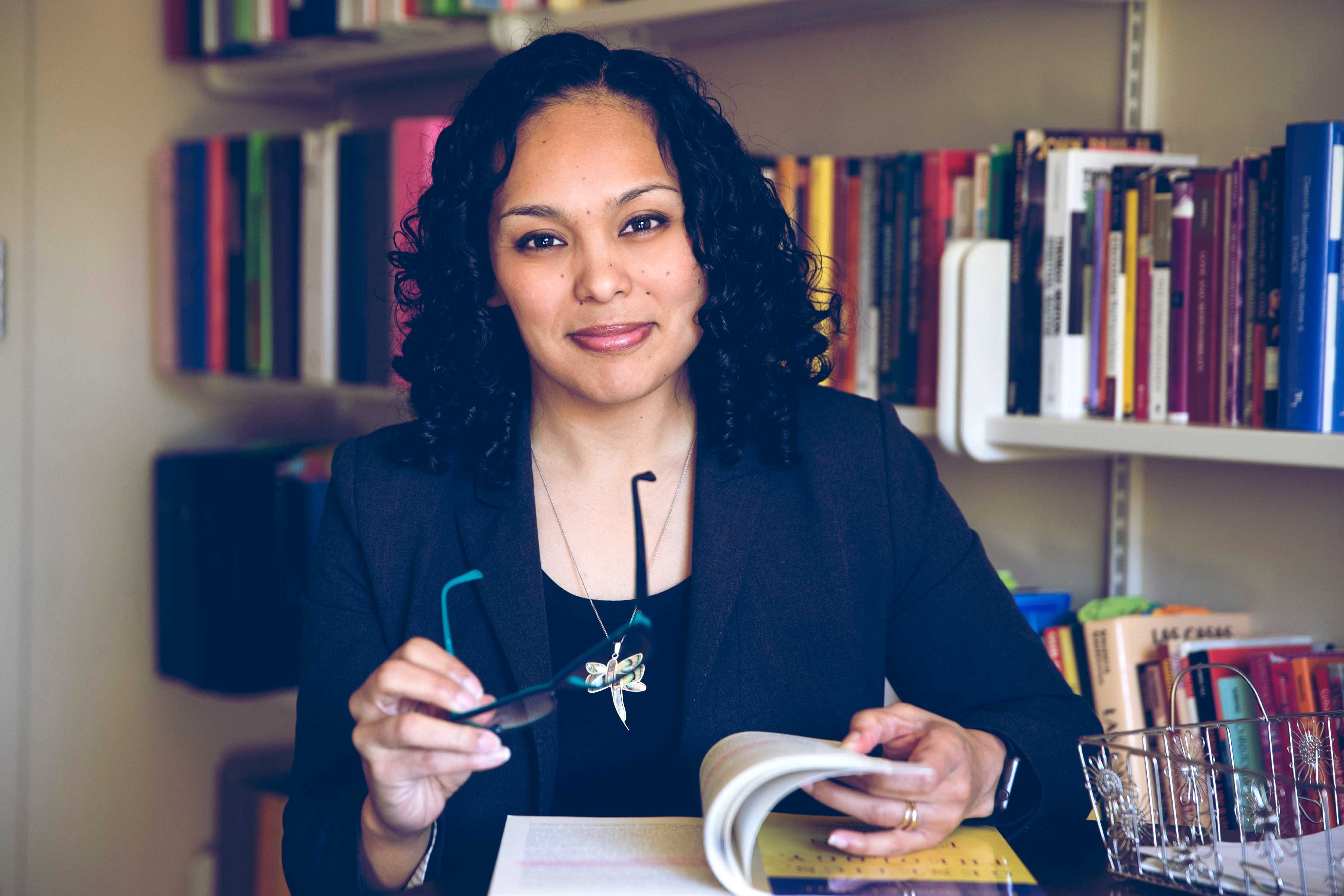
Nichole Flores
Assistant Professor of Religious Studies
I am excited to serve as a College Fellow co-teaching a course (along with Bruce Williams), “Do we still have faith in democracy?" Teaching in the engagements presents a unique opportunity to explore the ideas and practices of democracy with a diverse group of students eager to tackle one of the most challenging topics of our time during their first year in the college!
My teaching and research in religious ethics and democracy is animated by two life experiences. The first experience is attending public middle school on the west side of Denver, Colorado where the majority of my classmates were either Mexican or Vietnamese Catholics. Our teachers often asked us to explore questions about our deepest passions, values, and commitments, but we were tacitly asked to do so without breaching the "wall of separation between Church and State" famously articulated by Thomas Jefferson in his “Letter to the Danbury Baptists." Limiting religious engagement in the public educational setting curtailed our ability to constructively and critically evaluate the way our religious upbringings influenced our lives. The second experience is participating in community organizing alongside farmworkers from the Coalition of Immokalee Workers when I was in my mid-20s. As I marched alongside workers whom had experienced economic exploitation and human rights abuses in U.S. agricultural fields, I witnessed the power of religious people, communities, ideas, practices, and commitments (Catholic, Jewish, Muslim, Protestant, and Buddhist, among others) to help pursue justice for those on the bottom rungs of the global economy. While I think maintaining the separation between church and state is vital to maintaining a society committed to justice and equality, these experiences of religion in public life ignited my passion for exploring the ways that religion can enliven and/or hinder democracies at the local, national, and global levels.
My academic research emphasizes the relationship between religious ethics and aesthetics in cultivating solidarity in the context of religiously diverse and politically democratic societies. I also have a “side hustle" as a contributing author on the masthead at America: The Jesuit Review of Faith and Culture, where I write feature essays that interlace Catholic theology and ethics with politics and culture. This past winter, I fulfilled a lifelong dream of interviewing Federico Peña, the first Latinx mayor of Denver and a member of Bill Clinton’s cabinet, about the role his Catholic faith played in his public life.
